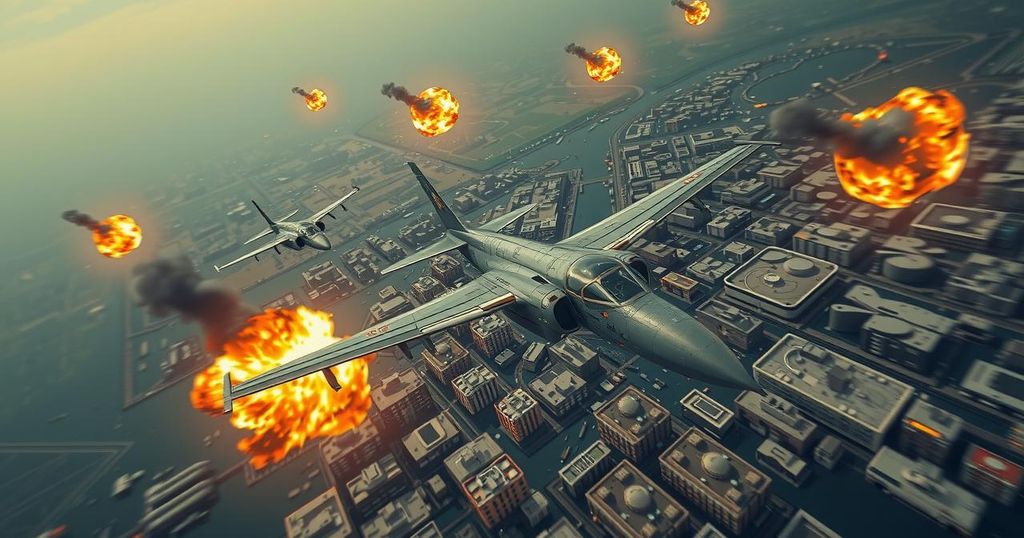Israel’s military operations targeting Iran have escalated, with strikes reported near Tehran and explosions in Syria and Iraq. These actions come amid Israel’s ongoing conflicts in Gaza and Lebanon, leading to calls for U.S. non-involvement and a diplomatic approach to prevent further escalation.
This week, Israel intensified its military actions against Iran amid ongoing conflicts in Gaza and Lebanon. Early on Saturday, Israeli forces conducted strikes near Tehran, targeting areas including the Imam Khomeini International Airport and the Sadeghiyeh neighborhood. These operations were described by the Israel Defense Forces (IDF) as a necessary response to repeated Iranian attacks targeting Israel since October 7. Rear Adm. Daniel Hagari, an IDF spokesperson, emphasized Israel’s right to defend itself against these aggressions, which have now been observed on multiple fronts. The strikes reportedly focused on military installations associated with Iran’s Islamic Revolutionary Guards Corps (IRGC). Iran retaliated with its own missile strikes previously linked to Israel’s actions against key figures in Hezbollah and Hamas. The escalation of hostilities indicates that Israel may now be involved in military actions across five nations: Palestine, Lebanon, Iran, Syria, and Iraq. This multi-front conflict has resulted in substantial casualties; in Palestine alone, the ongoing war has reportedly led to more than 153,000 deaths or injuries. Additionally, US officials confirm that the Biden administration was made aware of these military initiatives by Israel. Peace advocacy groups in the United States have raised alarms regarding the potential for further escalation of violence, arguing for non-involvement by the US in the Israel-Iran conflict. They caution against providing military assistance that could exacerbate tensions and disrupt President Biden’s objectives of establishing stability in the region. The call for restraint is underscored by fears of a wider conflict that could arise from the existing military engagements.
The recent military escalation initiated by Israel against Iran reflects a complex backdrop of geopolitical tensions in the Middle East. Following protracted hostility between Israel and Iranian forces, including various proxy groups in the region, this surge in military confrontation highlights a critical phase in ongoing regional conflicts. Israel has been engaged in active combat in Gaza and Lebanon, with substantial humanitarian impacts among the local populations. The assaults on Iranian targets, purportedly in response to Iranian missile strikes and support for militant groups, mark an intensification of this cycle of violence. Moreover, these developments are occurring against the backdrop of sensitive diplomatic relations, particularly regarding US involvement and potential strategy shifts as the nation approaches upcoming electoral processes. International observers have called for dialogue and de-escalation, noting the dire implications of full-scale warfare in an already volatile region.
In summary, the recent Israeli military strikes against Iran represent a significant escalation in ongoing conflicts within the Middle East. With multiple countries now engaged in combat due to these tensions, the precarious balance demands urgent attention to prevent further humanitarian crises and potential war. Advocacy for diplomatic engagement and conflict resolution has become increasingly critical as violence continues to escalate and threatens regional stability.
Original Source: www.commondreams.org






